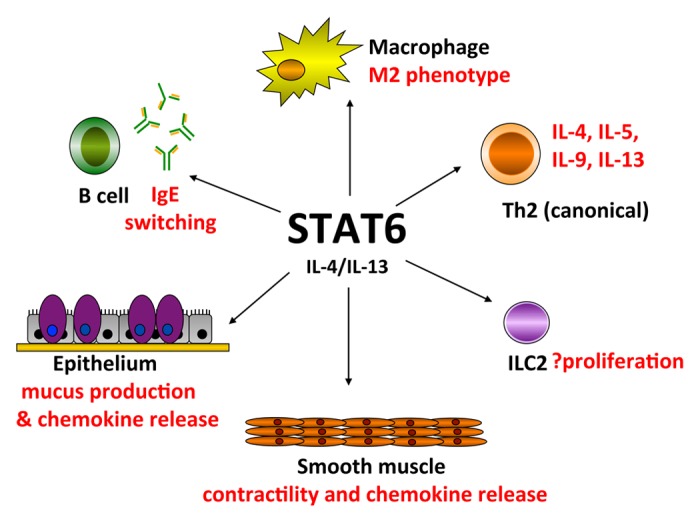
Figure 2. Effector functions mediated by STAT6 in multiple cell types in lung inflammation. IL-4/IL-13 activation of STAT6 leads to polarization of macrophages to the M2 “alternatively activated” phenotype that regulate tissue repair and anti-inflammatory responses. Naïve CD4+ T cells are differentiated into Th2 cells that produce Th2 cytokines (IL-4, IL-5, IL-9, and IL-13) by IL-4 in a STAT6-dependent manner (canonical differentiation). B cell isotype switching to IgE is mediated by STAT6. Lineage-negative type 2 innate lymphoid cells (ILC2) produce Th2 cytokines independent of STAT6 in vivo, but STAT6 may regulate ILC2 proliferation. Further, STAT6 controls IL-4/IL-13 induced epithelial mucus metaplasia that leads to airway mucus secretion found in many lung inflammatory diseases. IL-13 induces STAT6-dependent smooth muscle contractility that may contribute to airway hyperresponsiveness. Both airway epithelial cells and smooth muscle cells produce STAT6-dependent chemokines that result in lung eosinophilia.
